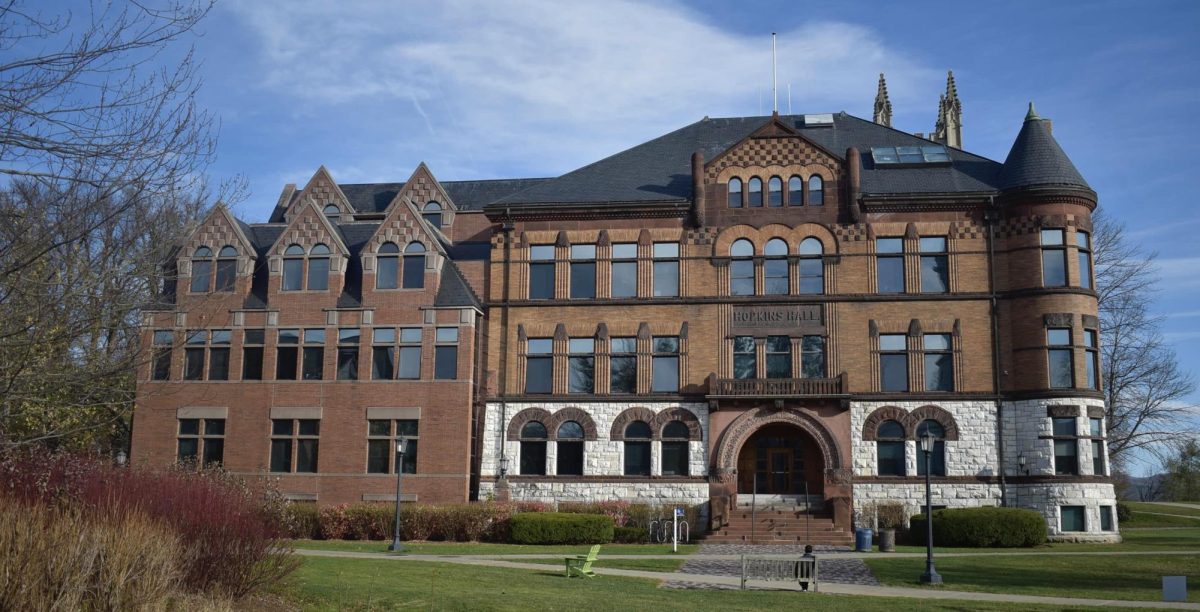Chaplains’ Corner: Reflections on the war in Ukraine and navigating a broken world
March 9, 2022
Holy One, Source of Strength,
War has begun, and innocent people are dying.
We ask Your protection for Ukraine and its citizens.
We pray for their safety and the security of the country,
and for the neighboring countries — Hungary, Poland, and Romania, among others —
that have opened their borders to provide humanitarian corridors
and safe passage for all those who wish to evacuate.
We seek the comfort of believing that everything will be all right,
even in the face of insurmountable odds.
With these words this past Friday night, the Williams College Jewish Association concluded its weekly Shabbat services at the Jewish Religious Center. Reciting this poem, written just days before by writer Joanne Fink, we brought the people of Ukraine and their struggle for freedom into our prayer space, and we offered a collective wish for their safety and security.
The situation in Ukraine is heartbreaking and terrifying. So many of us are distressed by the violence, wanton destruction, and targeting of civilians that is taking place. It is unfair and nearly unimaginable. For those of us with family and friends living through this nightmare, it can feel unbearable. Because after all, this is a war that the people of Ukraine did not ask for.
And yet, having it foisted upon them, the Ukrainian people are showing remarkable courage. Each day, alongside reports of the terror that many across the country are facing, we have also heard stories of resistance and bravery, from Ukrainian soldiers and civilians, and from Russian citizens who are attempting to speak out in the face of their government’s actions. It is through reading these stories that I find hope.
It can be difficult to imagine how people can manage to overcome such wanton destruction. As a college junior who had landed in Kyoto, Japan for my semester abroad on Sept. 10, 2001, I was jolted awake on my first morning in a new country, shocked to discover that the Twin Towers had been hit by two airplanes. As a student at Columbia University in New York City, I was especially dumbfounded by how my college city, my home for the past two years, had become the target of such an unconscionable and violent attack. When I returned from Japan in January 2002, I came to a city completely transformed — not only by the American flags newly sprouted on seemingly every street corner and on every fire truck — but also by a seemingly endless stream of news reports of people coming together to do what they could to help the city rebuild and to help those who lost loved ones and who were traumatized by the gruesome events, to heal. As a way to deal with the shock of the attack, residents of New York, New Jersey, and the surrounding area did what they could to help rebuild. Facing the immensity of the destruction, we got to work and did what we could.
From where we sit at this moment, tucked away in our corner of rural Massachusetts as midterm assignments start to pile up, it can feel as though there is little that we can do to affect a conflict that feels so far away, even as it is one that we witness on our devices with startling immediacy. But there are many ways that we can contribute and help, and donating money to a variety of causes and charities can be among the most effective steps we can take. We also have a responsibility to stay up to date on the struggle — to follow the news, listen to briefings, and watch reputable resources. Furthermore, it is incredibly important to check in on those whom you know are directly affected — both those on campus and in your wider circles.
These times make me realize that in spite of all that we struggle with in our country and in our community, there is much to be grateful for. But it also reminds me of our need to embody some of our highest values: generosity, empathy, solidarity, and hope.
In the story of the creation of the world as told by the mystics of the Lurianic kabbalistic tradition, God created a world that contains elements of brokenness. The reason for that is so that each of us could bring healing to the parts of existence that need it. The challenge is that each time we make progress toward bringing wholeness, something else shatters, or the thing that we are attempting to heal causes more breakage. But rather than get discouraged, this tradition teaches that we should continue to strive to bring about more healing. Even though it can feel that for every step forward, we take three steps back, we must keep trying to bring about change, wherever we find ourselves.
There is immense uncertainty ahead for the people of Ukraine, eastern Europe, and the world. But by recognizing that each of us has a part to play, each of us can bring a little bit of healing, we can ensure that we continue to work toward bringing healing and wholeness to a world that so desperately needs it.
Rabbi Seth Wax is the College’s Jewish Chaplain.







